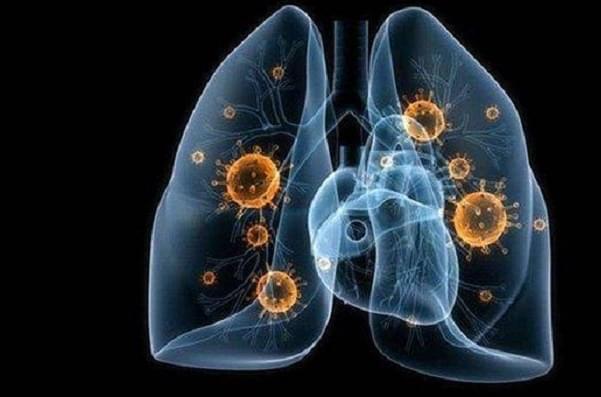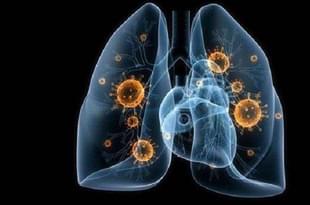Science
Unlike MRI And CT Scan, New Imaging Tech Can Detect Lung Damage In Long Covid Patients
Bhaswati Guha Majumder
May 28, 2021, 05:20 PM | Updated 05:20 PM IST
Save & read from anywhere!
Bookmark stories for easy access on any device or the Swarajya app.


Long Covid, a term to describe the effects of novel coronavirus infection that continue for weeks or months beyond the initial illness, has caught the attention of experts.
But Dr Randeep Guleria, the director of All India Institute of Medical Sciences (AIIMS), explained that if symptoms persist for 4-12 weeks, it should be considered as a post-Covid acute syndrome, while if symptoms persist for longer than 12 weeks, it should be regarded as long Covid.
He suggested rehabilitation of patients experiencing long Covid and setting up multidisciplinary post-Covid clinics.
However, other experts believe that for long Covid survivors, a multi-care approach would be needed because it can impact so many different organs.
According to them, monitoring the health of Covid-19 survivors who have recovered for up to a year is required, which would ensure that they are really out of danger.
Long Covid symptoms include fatigue, shortness of breath, difficulty concentrating or brain fog, mood changes, muscle pain, loss of taste and smell or anosmia, insomnia and heart palp.
New Technology Can Help
While this medical phenomenon is still a bit of mystery, currently, there is no clear data about how many people have long Covid in India.
But in the United Kingdom, some experts have been looking into the statistics to understand this medical condition.
As per new research, experts have noticed a new type of imaging technique can successfully detect lung damage in those suffering from the long-term effects of the coronavirus caused disease.
Since the standard MRI or CT scans cannot showcase the weakened lung function, the new technology is expected to help clinicians understand the persistent breathing impairments seen in long Covid patients.
An ongoing study in the United Kingdom, called PHOSP-COVID, is tracking a large number of patients for many months following hospitalization.
A small branch of that study is now investigating long-term lung problems in this group of people.
The research, published in the journal Radiology, uses a unique technology named Hyperpolarized xenon MRI or 129Xe MRI, which offers a detailed insight into the lung functions and gas transfer into the bloodstream.
Jim Wild, who is the Head of Imaging and NIHR Research Professor of Magnetic Resonance at the University of Sheffield, said, “The 129Xe MRI is pinpointing the parts of the lung where the physiology of oxygen uptake is impaired due to long-standing effects of Covid-19 on the lungs, even though they often look normal on CT scan”.
This small study involves scans from 9 long Covid patients, averaging almost six months post-hospitalization—all of them reported persistent breathlessness and got normal CT lung scan reports.
Fergus Gleeson, the Professor of Radiology at the University of Oxford and Consultant Radiologist at Oxford University Hospitals (OUH) NHS Foundation Trust, said, “Our follow-up scans using hyperpolarized xenon MRI have found that abnormalities not normally visible on regular scans are indeed present”.
According to him, these abnormalities are preventing the oxygen from getting into the bloodstream as it should in all parts of the lungs.
This new technique is offering some of the first empirical signs of the damaged lungs in long Covid patients while pointing out the fact that it is not merely a hypochondriacal condition.
“We have some way to go before fully comprehending the nature of the lung impairment that follows a COVID-19 infection,” said Gleeson.
“But these findings, which are the product of a clinical-academic collaboration between Oxford and Sheffield, are an important step on the path to understanding the biological basis of long Covid and that, in turn, will help us to develop more effective therapies,” he added.





